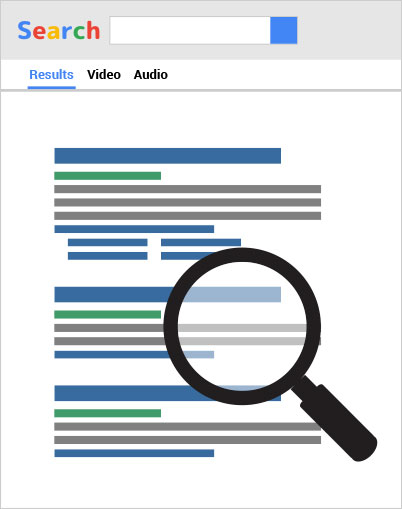Pay-Per-Click Advertising
 Pay per click advertising, or PPC, is a type of Internet marketing in which advertisers pay a certain fee each time someone clicks on their ad. Rather than attempting to earn clicks organically, PPC is essentially a way to buy visits to your website. Pay per click advertising is an Internet marketing tactic to drive traffic to your website through paid advertisements. Content sites typically charge a fixed price per click, while search engines use a bidding system where advertisers bid on keywords relevant to their target audience. Websites that display PPC ads will display an advertisement, also known as “banner ad,” when a keyword query matches an advertiser’s keyword list. These banner ads, also called sponsored links/ads, will appear adjacent to or above the organic search results on a search engine. Content websites may display the PPC ad anywhere they choose on their website.
Pay per click advertising, or PPC, is a type of Internet marketing in which advertisers pay a certain fee each time someone clicks on their ad. Rather than attempting to earn clicks organically, PPC is essentially a way to buy visits to your website. Pay per click advertising is an Internet marketing tactic to drive traffic to your website through paid advertisements. Content sites typically charge a fixed price per click, while search engines use a bidding system where advertisers bid on keywords relevant to their target audience. Websites that display PPC ads will display an advertisement, also known as “banner ad,” when a keyword query matches an advertiser’s keyword list. These banner ads, also called sponsored links/ads, will appear adjacent to or above the organic search results on a search engine. Content websites may display the PPC ad anywhere they choose on their website.
What are the advantages to Pay-Per-Click advertising?
On the internet, website clicks are a tool to measure attention and interest, and as such, PPC provides insight into how effective the advertising was. PPC is also a method to drive traffic to your website through paying for clicks. As briefly mentioned above, there are two different types of PPC: flat rate and bid-based. For the flat-rate model, the publisher and advertiser agree upon a fixed amount that will be paid for each click. With the bidding model of PPC, the advertiser signs a contract with the publisher that lets them compete against other advertisers in an auction. The advertiser decides on a maximum amount he or she is willing to pay for a given ad spot based on a keyword. Google AdWords is the most popular pay per click advertising system in the world. Google AdWords, which works on a PPC model, allows businesses to create ads that appear on Google’s search engine and other related sites. Each time a user enters a search query, AdWords digs into the pile of bidders (advertisers) and chooses a set of winners to appear in the ads section of the search engine results page (SERP). The winners are chosen based on a variety of factors including keyword relevance and the size of their bid.
 What makes an effective PPC campaign?
What makes an effective PPC campaign?
A lot goes into creating an effective PPC campaign, including researching and choosing the best keywords, organizing those keywords into organized ad groups and campaigns, and creating PPC landing pages that are best optimized for conversions. It’s important that your ad campaign stays updated and continuously refined. A successful PPC keyword list should be relevant, exhaustive, and expansive.
At Lucid Prints, we specialize in Internet marketing, including pay per click advertising. Keyword research for PPC is incredibly time-consuming, but it is also essential to an effective pay per click advertising campaign. We understand the process of creating a winning PPC campaign and we have the time to dedicate to creating a successful PPC campaign for your business. It’s essential that your pay per click advertising campaign is managed regularly to ensure that it remains effective. This is time consuming and that’s where we come in. At Lucid Prints, we don’t just create your ad campaign, but we also manage it to make sure you are getting the most bang for your buck.


